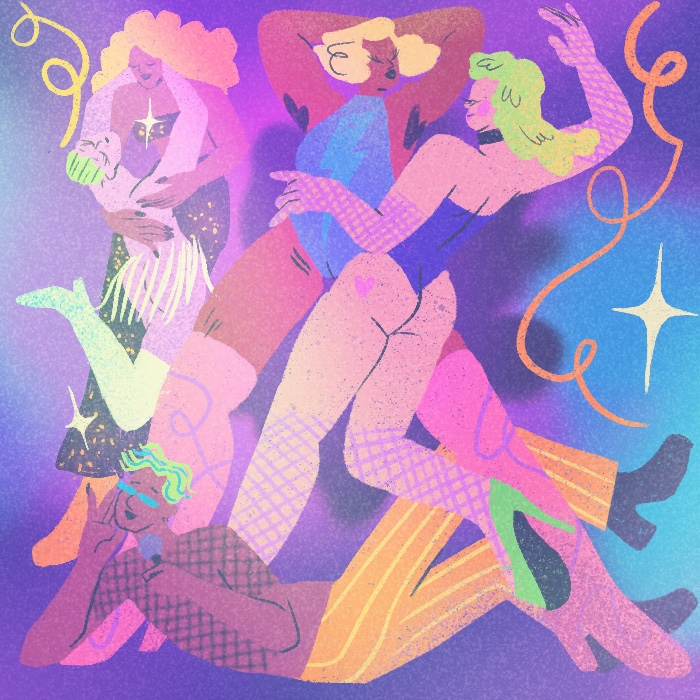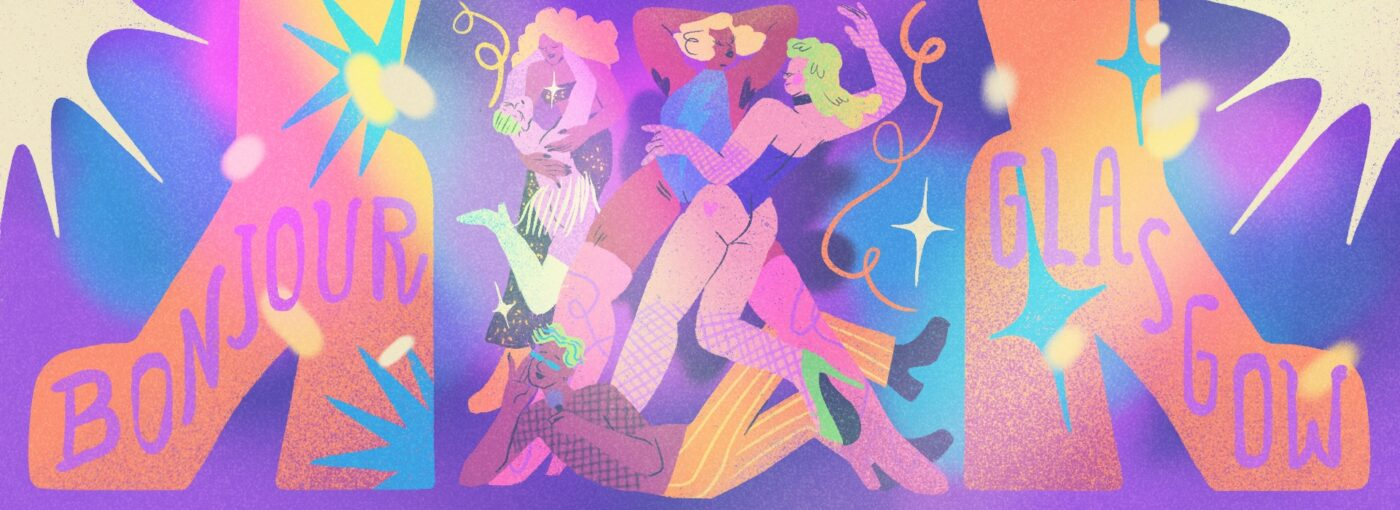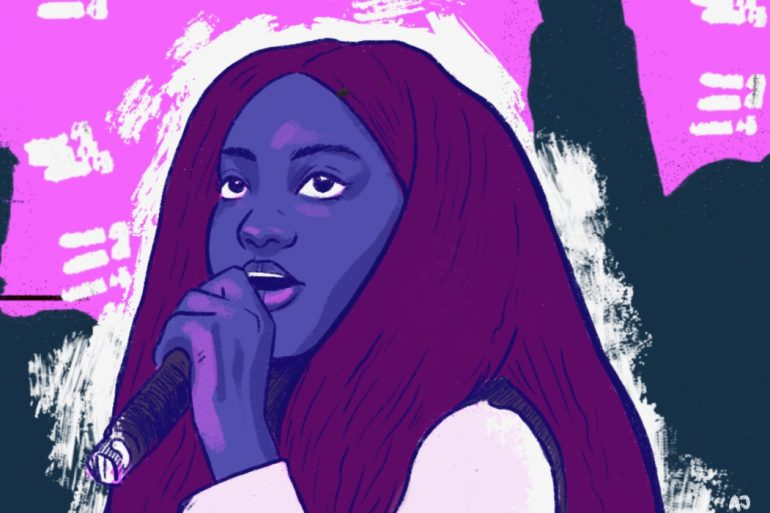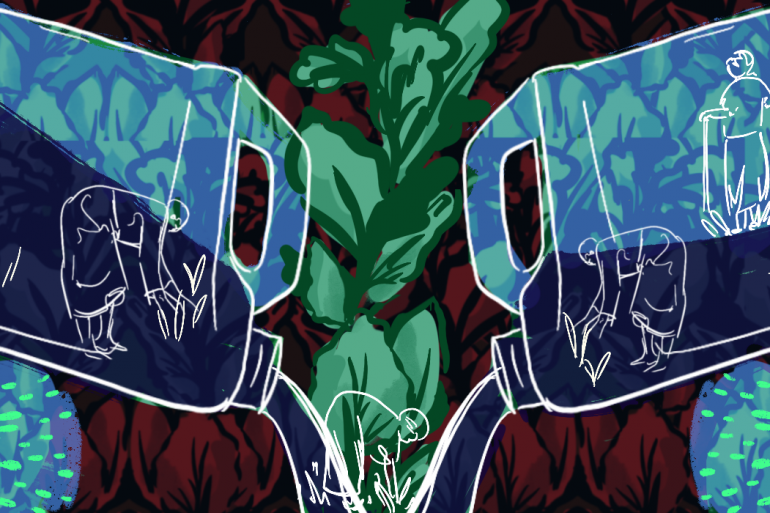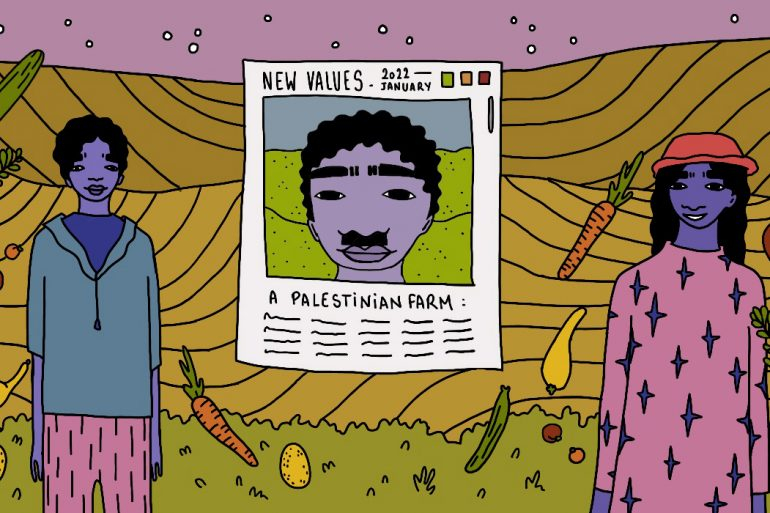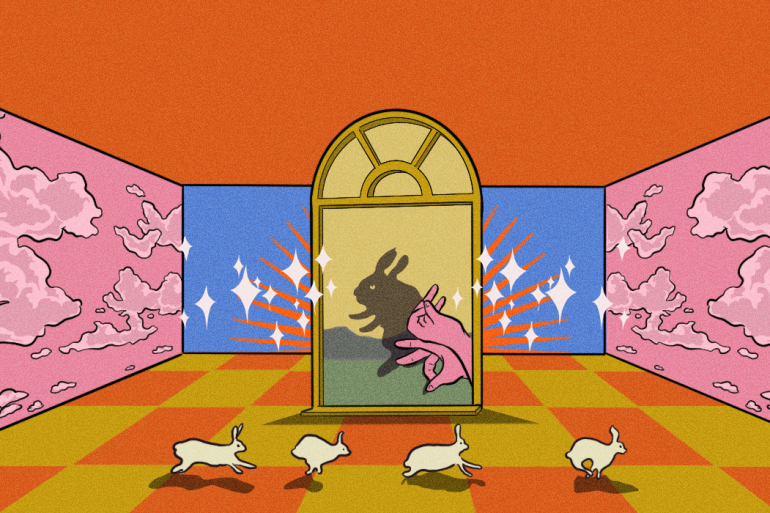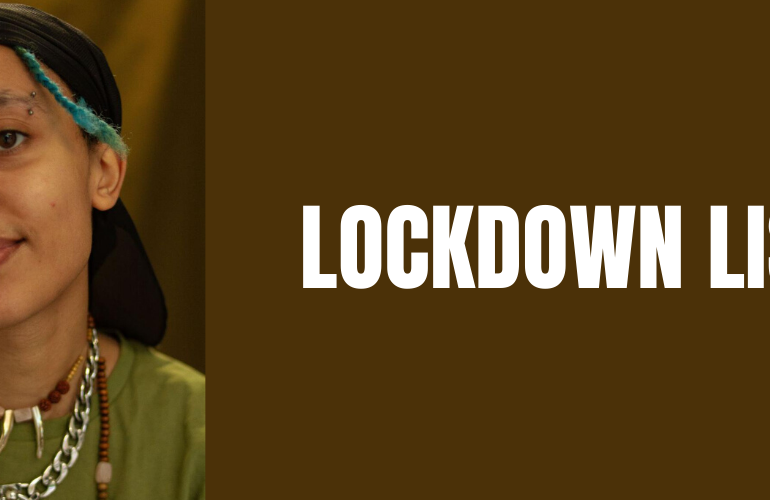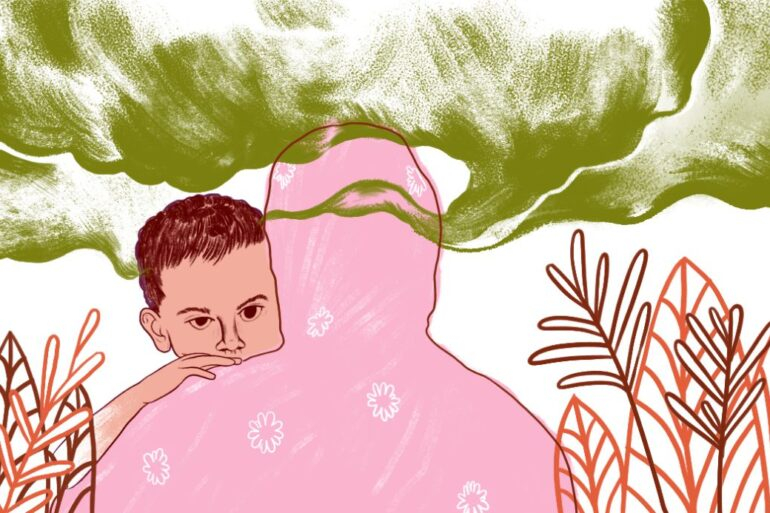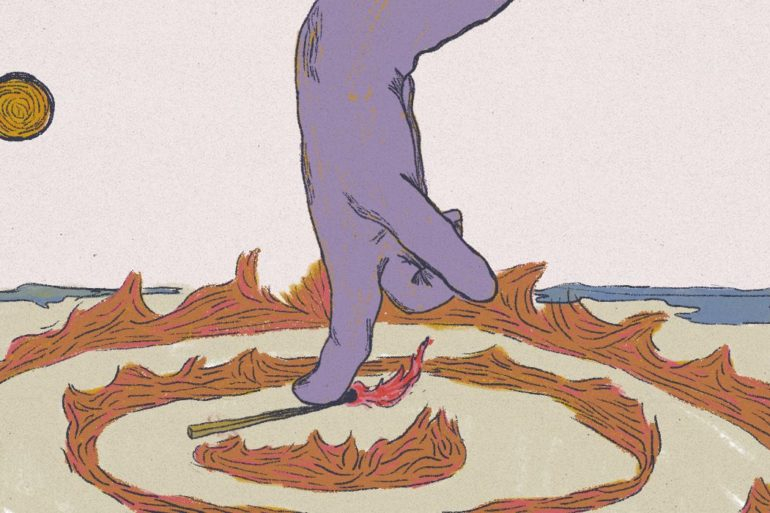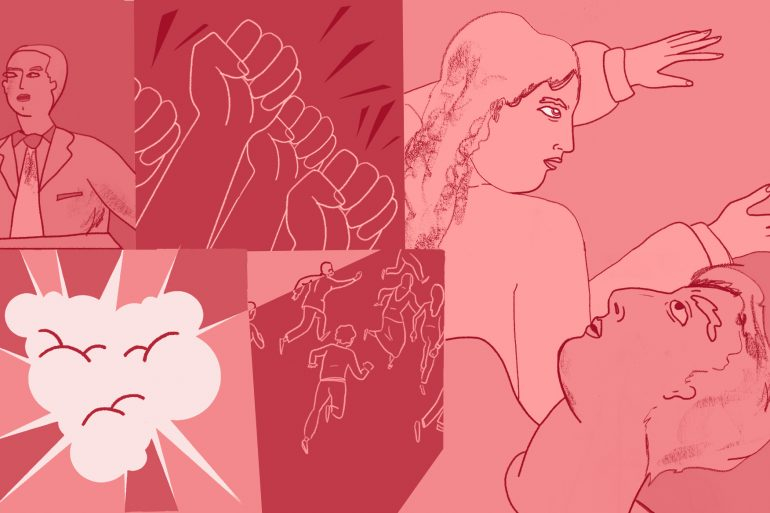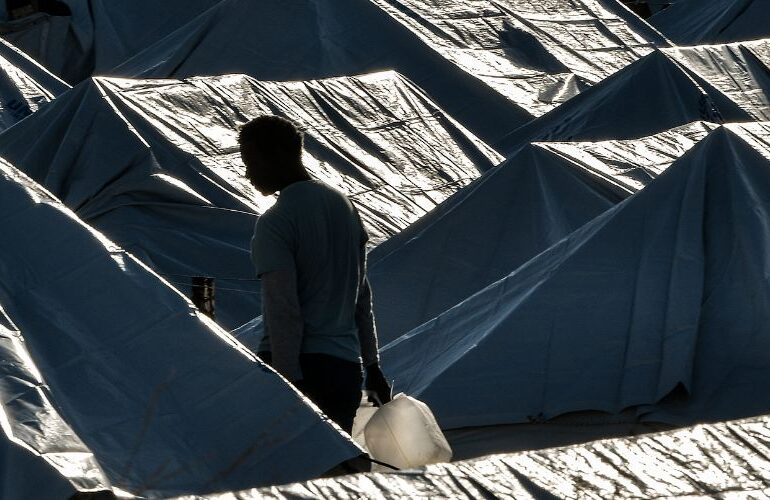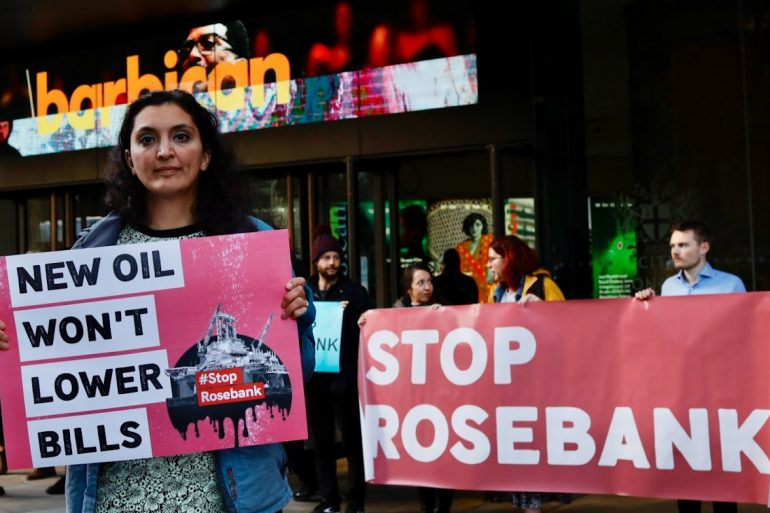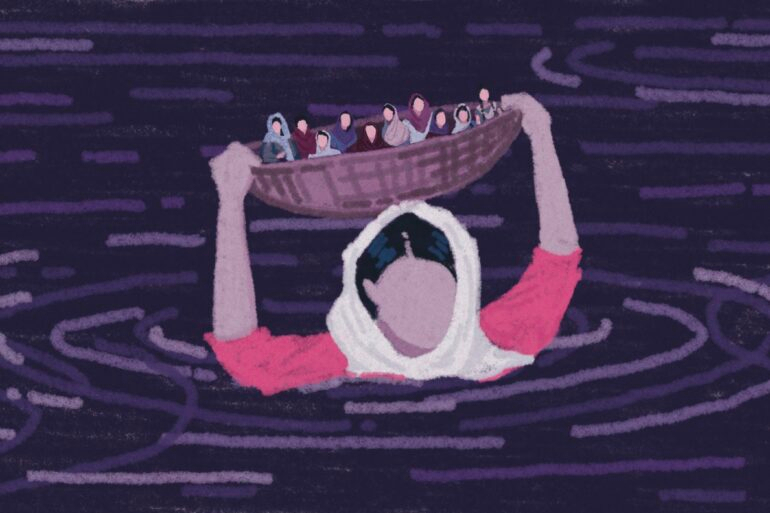It is a drizzly Saturday afternoon in Glasgow and local queer space Bonjour is preparing for an event that evening that could decide its future. Frankie, Kathryn, and Peter, three of the nightclub’s co-op members and resident DJs, take shelter under the arches of the railway bridge that Bonjour is nestled in and discuss the timetable for the upcoming fundraiser. The event will see some of queer Glasgow’s best nightlife talent perform in the hope to raise, along with its online efforts, enough funds to secure the future of the space until at least the end of the year.
Bonjour opened to the general public in June 2021 and is run as a non-hierarchical workers’ co-op; there are no bosses or managers, and each member has as much say as the next. “We are made up of, and prioritise, underrepresented groups in the LGBTQI+ community: people of colour, trans and non-binary people and queer women,” explains Frankie. This is reflected in the events that are put on here, which range from sex worker-led parties to Scotland’s first POC focused drag night. The space has become integral to the Glasgow queer scene and serves as a respite for people who may feel unsafe in other spaces around the city.
Yet over the past few months, Bonjour has suffered a number of financial setbacks that have risked its future. Lockdowns, issues with Scottish Water, forced closures and the recent rising energy prices hit the non-profit space hard. Whilst other nightclubs may raise ticket prices or pay performers less to alleviate these woes, for Bonjour these were not compromises they could make. “We make sure queer performers get fairly paid,” says Frankie, “and no customers are turned away for lack of funds.” Bonjour’s message rang loud; it would not buckle in its amplifying of marginalised communities – even when faced with the imminent threat of closure. In doing so, Bonjour also put faith in its community to help out in its time of need.
Bonjour is, for me, a kaleidoscopic diorama of the reason I love Glasgow’s queer nightlife scene. It is a scene that seeks to centre safety in the spaces it inhabits, encircling the city like its doughnut-shaped subway, and respecting the crowd that they serve. The scene creates space for some of the most forward-thinking club culture in the UK, with Bonjour playing host to many of them. Take the medieval misanthropy of Shrek 666, the lurid euphoria of Joey Mousepads and ethereal edge of Sgaire Wood: if club bookings, magazine spreads and Instagram followers are anything to go by, the influence of these performers stretch far beyond the sandstone tenements of Scotland’s largest city.
TAAHLIAH is one such artist that is helping shape the city’s music and nightlife scene. Having made a name for herself in the queer scenes of Glasgow and Berlin, she released her debut EP Angelica during lockdown (which included other Glasgow-based queer artists Lady Neptune, Kavari and Spent) resulting in numerous national awards and a Boiler Room set this past summer. She DJed at one of the first events to be held at Bonjour, a fundraiser for the charity Small Trans Library. “I love playing in Glasgow,” she tells me over the phone. “I think Scottish crowds are the best you can play to because of the energy and atmosphere that they bring.”
And while Glasgow crowds invariably go crazy for DJs like TAAHLIAH who cut their teeth in the city, I think there is another dimension that is just as important. Us Glaswegian crowds know who is hosting the parties. There is a queerness and diversity on all levels of the culture – parties put on by queer Glasgow for queer Glasgow. This may not sound so revolutionary, but in other settings nights are almost forms of queer baiting; straight promoters booking queer acts for capital gain and optics. The promoters, bookers, performers, and DJs here in Glasgow, however, are as limped wrist as the rest of us – sprawled out at the after-parties, mentoring, and uplifting other creatives, and involved in community action.
The rise of queer bookers in traditionally heteronormative spaces is particularly encouraging to see, some of Glasgow’s best clubs are just getting queerer. But if we zoom out to survey the cartography of Glasgow’s nightlife, we see that queer establishments really only make up a small pocket of the city. We bump into each other because there are only a few spaces that fully welcome us, especially those from the trans and/or POC community. Performers and punters still get regularly harassed, misgendered and policed in toilets even at mainstream clubs that are putting on queer events. “There are some places that I just won’t go,”’ TAALIAH tells me. “I guess there is a familiarity to Glasgow that makes me feel so much safer, but safety is a conditional thing.” On her podcast The Dolls Discuss, which she co-hosts with best friend Lourdes, TAAHLIAH mentions how staff transphobically abused her at the biggest gay bar in the city. “I feel the city is still segregated in some ways,” she muses to me.
For Bonjour, safety is a top priority and includes understanding the nuances of feeling secure for people from marginalised identities. Peter asserts: “We’ve got to be mindful of the different ways people can be made to feel unsafe in a club venue and how discrimination, harassmentand micro-aggression can manifest and be mitigated.” Kathryn, who first got involved with Bonjour by working on the door, agrees, adding that “people need to know what kind of space they’re entering into.”
Bonjour is in the process of creating a permanent welfare team (meaning that staff will be trained in protecting the wellbeing and safety of all attendees) as well as promoting their ‘house rules’ on social media, especially for sex-positive parties like its bi-monthly night KIN.X. They also have taxi funds for performers and vulnerable customers who may feel unsafe leaving the space on foot.
Thankfully, this allows Bonjour to serve as a haven for vulnerable community members that experience discrimination in the outside world. One such person who uses Bonjour as euphoric refuge is Lorelai, a trans woman from India. After stumbling across the space last year, Lorelai began to attend their events regularly. “At Bonjour you meet people, you find people, you build bonds of solidarity,” she tells me. “Bonjour was the kind of space that helped me realise I could find this safety here in Glasgow. And so, I decided to apply for asylum here.”
Lorelai’s asylum process has been tough. As with all people applying for asylum, her right to work has been stripped away from her and it has been next to impossible to cover financial costs like housing, let alone start the costly process of her medical transition. So, with the help of MOJXMMA, a party for QTIPOC at Bonjour, Lorelai organised her first fundraiser.
The night was a success and was followed by another; “the fundraisers have raised money for my survival and transition fund,” says Lorelai, “but I think what is most important is people showing up in support.”
Lorelai is not alone in benefitting from fundraisers; there’s at least one fundraiser a month at Bonjour and other queer nights around the city, primarily supporting trans people with their transitions in a time where the average wait-time for just an initial appointment is around three years. Bonjour also donates its door money to gender confirming funds, including for people who haven’t hosted fundraiser parties. “We don’t want it to be only people with a wide social network that get the money,” Peter tells me. “Yeah, and we also want to support people who want to transition privately, as that’s a privilege many trans folx don’t get,” Frankie adds. Even when struggling themselves, Bonjour will always remain loyal to the community it is and it serves – the queer, POC and trans community.
Back to the rainy October night. It’s close to midnight and Frankie is playing behind the decks as Kathryn, Peter, and the rest of the Bonjour co-op usher in the swelling crowd of fishnets and lipstick-stained rollies. The night is going well and in amongst the gabber, breakbeat and remixed gay anthems, people are donating in their droves and signing up for memberships.
The place is packed, and a mass of people are waiting for their drinks, queuing on the parquet floor. I spot queer creatives and afterparty hosts, freaks and witches, and an older man sitting by himself having a quiet drink – a mark of solidarity for the queer venue and scene that we all want to protect.
Bonjour’s future is secure for the short-term, but as our Tory government continues to decimate local club culture and try to further vilify marginal identities in society, no fate is certain right now. But as a community, Glasgow will continue to look out for each other, and host some of the best parties the UK has to offer.
What can you do?
- Follow @bonjourglasgow
- If you would like to donate to Bonjour’s fundraiser you can do so here
- Read Young Mungo by Douglas Stuart
- Watch Sgaire Wood for Vogue
- Watch i-D Glasgow after party scene
- Read this Shrek 666 article
- Read about other organising movements in Glasgow in this article: Kenmure Street: a rally against the “good” / “bad” migrant narrative – Shado Magazine
